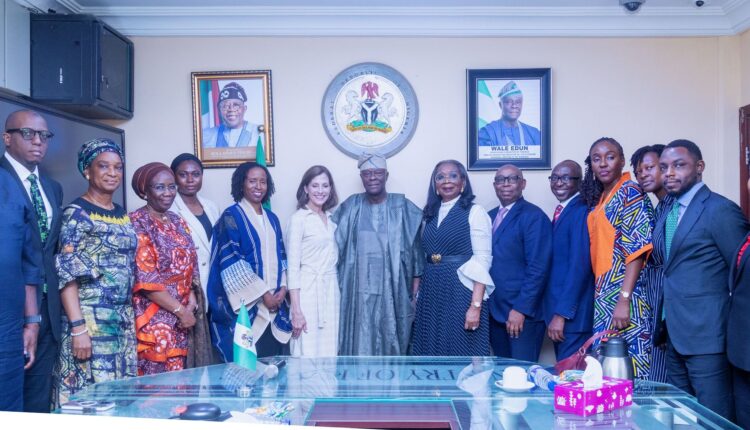Nigeria Bets Big on Impact Capital to Power Inclusive Growth and Job Creation
In a bold departure from traditional economic models, the Federal Government has announced a $50 million anchor investment in the Nigeria Wholesale Impact Investment Fund (WIIF) — a new financial vehicle designed to unlock billions in private capital for transformative projects across the country.
Director of Information and Public Relations, Mohammed Manga in a statement said, the fund, which secured a $100 million first close, represents a shift toward smarter, values-driven financing that seeks both financial returns and measurable social impact.
It indicated that investment aligns directly with President Bola Ahmed Tinubu’s ambition to drive 7% annual economic growth by focusing on critical sectors such as agriculture, infrastructure, digital innovation, and youth enterprise.
The Honourable Minister of Finance and Coordinating Minister of the Economy, Mr. Wale Edun, at a strategy session convened in Abuja,
welcomed a powerhouse delegation of impact economy leaders and private sector financiers, including Mrs. Ibukun Awosika (Chair, Impact Investors Foundation and Global Steering Group), Mr. Wale Adeosun (CEO, Kuramo Capital), Ms. Sanyade Okoli (Special Adviser to the President on Finance & Economy), and Mrs. Lydia Shehu Jafiya (Permanent Secretary, Finance).
According to the statement, the fund is expected to provide catalytic capital to small and growing businesses (SGBs) — particularly those led by youth — and will be directly linked to the upcoming African Development Bank-supported Youth Entrepreneurship Bank. Structured engagement with the Development Bank of Nigeria (DBN) is underway to define the fund’s drawdown roadmap, while talks around risk-sharing mechanisms, including government-backed guarantees, are also advancing.
“This is not business as usual,” Minister Edun said. “We are building an economy where growth is inclusive, capital is catalytic, and outcomes are measurable. WIIF represents our commitment to ensuring no Nigerian is left behind.”
The WIIF is a direct response to the growing demand for high-impact investments that deliver real solutions to unemployment, poverty, and underdevelopment. With millions of jobs expected to be created through targeted financing for micro, small, and medium enterprises (MSMEs), the fund could redefine how development is financed in Nigeria.

Stakeholders see the fund as a potential blueprint for African economies seeking to harness private capital for public good. By aligning public investment with mission-driven private capital, Nigeria is charting a new course — one that blends profit with purpose and policy with people.
As Mrs. Awosika noted, “This is how we build resilient economies — not just by spending more, but by spending better.”

